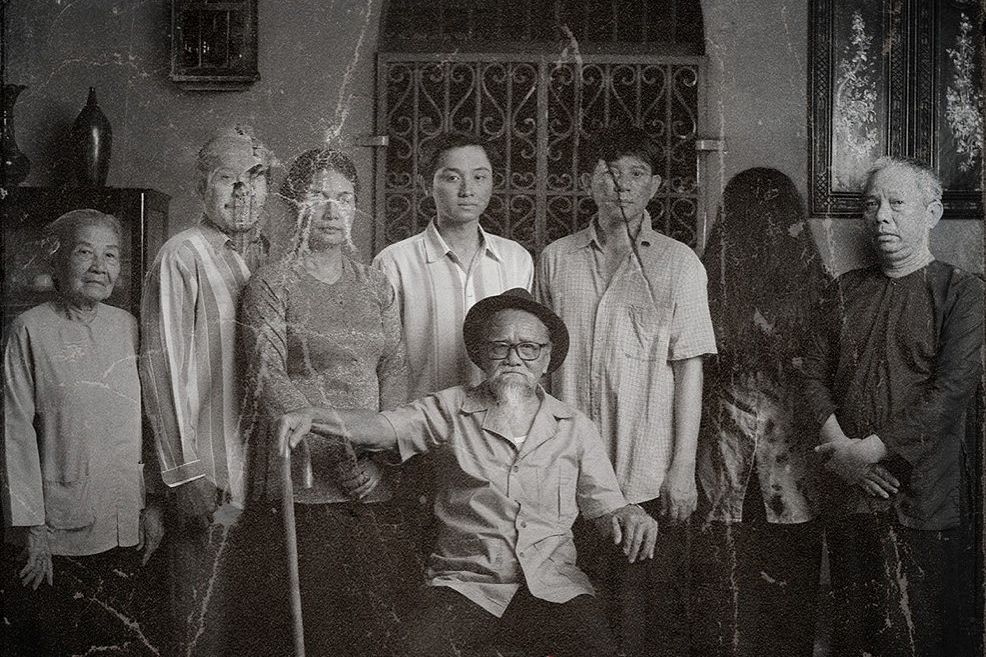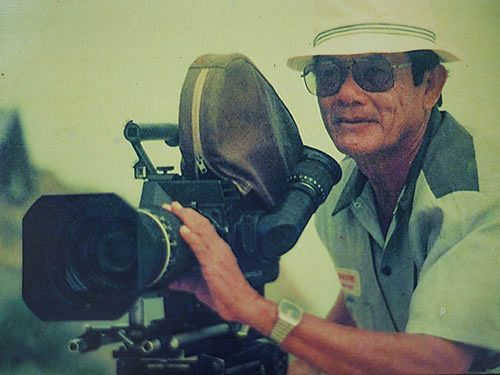After all it’s been through in conjunction with the historical journey of the nation itself, it's safe to say that it has been one hell of a ride for the Vietnamese film industry.
With more financial support and global recognition, Vietnam's movie industry has witnessed notable growth in recent years, in both output and content. Size-wise, both local demand and the supply have seen significant increases. Going to the movies has become one of the most convenient and fuss-free pastimes of Vietnam. With more multiplexes appearing across the nation since the early 2000s, the amount of movies released each year and number of people going to the theaters have both been increasing significantly.
Content-wise, over the past decade, there are signs that Vietnam is getting better at developing original content that's deeply rooted in local culture and social issues, and international film circles are starting to take notice.
In October 2019, five Vietnamese movies were screened at the Busan International Film Festival, one of Asia’s most prominent cinema events celebrating local talents. Rom, a feature by director Tran Dung Thanh Huy, even clinched the top prize in the New Currents category. The film chronicles the hardship of homeless kids on the streets of Saigon through the story of Rom, the titular character. They have to find every means possible to survive, from selling lottery tickets to shining shoes.

Rom offers an ultra-realistic, gritty glimpse inside the life of Vietnam's homeless kids. Photo courtesy of HKFilm via Tuoi Tre.
Still, for bona fide movie fans in Vietnam, it is still too early to celebrate just yet, as the local industry has hurdles to overcome.
A number of industry insiders have pointed to a lack of systematic support in providing training for newcomers and ensuring long-term motivation of movie professionals. Jennie Trang Le, a veteran producer who's worked on major features like Loi Bao, Bui Doi Cho Lon and Teo Em, noted on the abundance of talents seeking jobs in the film scene. "Actually more and more people are showing interest and coming into the industry," Jennie told Saigoneer. "The task however, is to ensure the quality.”
According to her, in recent years, many budding new faces enter the industry as actors, directors and screenwriters, a somewhat positive sign. However, what the current scene is lacking are formally trained graduates of film studies who often do not end up working in the industry. Consistency also has some room for improvements as not everyone puts forth great performances all the time.
Finding budgets for film projects is also a constant source of headaches for local film productions. A new generation of directors, independent of the state’s budget or funding from major private companies, choose to figure out budgeting and training themselves or seek support from international film investors, funds or foundations. The Ford Foundation, according to Jennie, was one of these vital sources of financial assistance. For years, it funded a number of Vietnamese filmmakers to receive training at prestigious film schools abroad in more established countries. This is no longer available.

Di Tim Phong is an independent documentary centered around the titular Phong, a trans woman living in Hanoi. The film is among the handful of documentary features in Vietnam that were released in commercial theaters. Photo via Kenh14.
Despite the gaps in expertise and funding, the Vietnamese film industry also stands to benefit from a changing landscape in global interests and cultural representation. There's an unprecedented amount of attention being paid to Asian films on the global stage at the moment partly thanks to the historic Oscar win of South Korean film dark comedy Parasite. Lulu Wang's heart-wrenching family drama The Farewell earned major nods during this year's Golden Globe Award, culminating in a Best Actress victory for Awkwafina. Nguyen Phuong Anh's directorial debut The Third Wife was also nominated for three Independent Spirit Awards.
When asked about the hardships for Vietnamese films in competing with Hollywood blockbusters in this era, a number of filmmakers interviewed have shown cautious optimism in the unique potentials only domestic films hold, bolstered by the strong sense of community shared among the close-knit community of people working in the scene.
“Being in the Vietnamese film industry, we are very supportive of each other. We share information. If we win we all win and if we lose we all lose,” Jennie Trang Le emphasized on the local community's closeness. She added that as different films from different productions and teams are, at the end of the day, all are categorized under a single category of "Vietnamese film" in the eyes of the audience.
Vietnamese-American Director Danny Do also echoed similar sentiments in the local filmmaking community. "I believe there is going to be a great change as Asian content is trending," Do tells Saigoneer via a Facebook message. "I’m sure the film industry here will be more open to create many genres besides comedy and horror.”

A scene in Thua Me Con Di, the first commercial film with an LGBT-themed plot. Photo via Bao An Giang.
Just last year, there were already a few instances demonstrating the remarkable successes of domestic films in winning over Vietnamese audiences from Hollywood productions. Hai Phuong (Furie) starring Ngo Thanh Van and directed by Le Van Kiet was the prime example of such changes. The film tells the journey of a mother, a former gang leader played by Ngo Thanh Van, who fights to get her kidnapped daughter back from human traffickers. After a month in theaters in Vietnam, Canada and the US, it became both the highest-grossing Vietnamese movie of all time and the highest-grossing movie screened in Vietnam, raking in VND200 billion.
Along with the support of the Vietnamese diaspora and the established brand name of Van, the movie's financial win could be attributed to having artistically incorporated what can happen in ordinary lives in Vietnam, Hollywood-style fight choreography and Vovinam, the traditional Vietnamese martial arts. Here lies the endless potentials for the future success of the domestic films, not just in the local market but also at a global level. Vietnamese storytellers hungry to tell to the world stories that are unique to Vietnam in a global aesthetic should be supported with adequate and consistent support from financial stakeholders, be it the local film authority or other independent sources of funding.
The release trailer of Em La Ba Noi Cua Anh, directed by Phan Gia Nhat Linh.
Today, that sense of community is also the cornerstone of some positive movements being initiated in the industry. Creative studio East is among them. It was created by a group of filmmakers of Asian descent, including names like Jennie Trang Le herself, and Vietnamese director Phan Gia Nhat Linh, whose 2015 release Em La Ba Noi Cua Anh is an all-time favorite rom-com for many local fans. Director Bao Nguyen, also a founding member of EAST, told Saigoneer that the company was formed to create Vietnamese cinema and content that's elevated yet at the same time always accessible to all audiences.
"For us, there is no difference between creating films that are both engaging and entertaining," Nguyen explains. "The world is hungry for stories from Vietnam and Vietnamese filmmakers are hungry to tell them."
He added that in addition to the ongoing projects of the directors of the company, they hope to raise more financing for projects from emerging Vietnamese filmmakers who are looking for a space in the industry that speaks to them. "It’s a delicate balance but we find there is definitely room in there especially in this growing Vietnamese cinema market."















